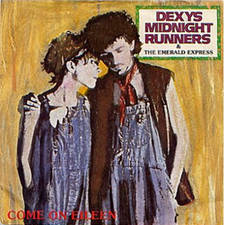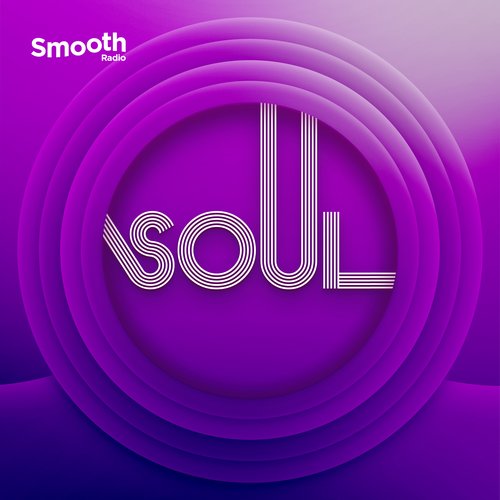When Christopher Reeve brought the Oscars to tears with first appearance since paralysis
7 March 2024, 14:51
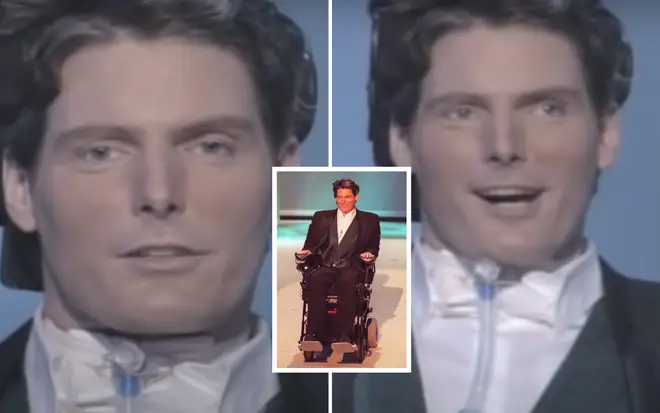
Listen to this article
It was an accident that was sadly change his life forever.
Christopher Reeve was an actor renowned for his portrayal of Superman and his alter ego Clark Kent, bringing the iconic superhero to the big screen for the first time.
Away from the trappings of Hollywood however, Reeve was a keen horse rider and frequently took part in dressage events.
One particular event in Virginia would alter the course of his life, when on 27th May 1995, Reeve was thrown from his horse and landed headfirst.
The first and second vertebrae in the actor's spine shattered, leaving him instantly paralysed from the neck down, unable to breathe.
- Oscars: Which artists and songs have won Best Song (and which missed out)?
- The greatest Oscars music performances of all time, ranked
- When Michael Jackson and Madonna attended the Oscars together: "The best date ever"
Whilst he later regained the ability to breathe for a maximum of 90 minutes without his ventilator - due to his extraordinary determination and mental fortitude - he'd never be able to move his body again.
Once the public heard of his accident, they also thought it would be the last we'd see of Christopher Reeve, understandably presuming he'd keep his battle private.
But Reeve transformed into a real life superhero when he surprised the audience and millions watching at home, when he bravely appeared at the 1996 Academy Awards, leaving everyone in tears.
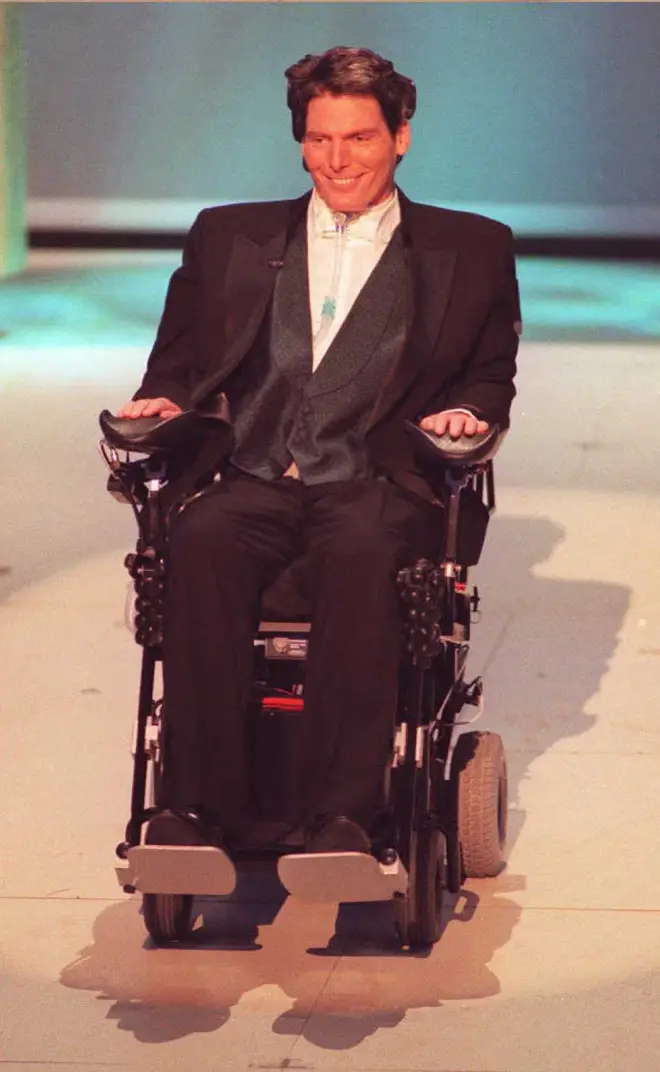
Welcomed with a lengthy standing ovation, Reeve entered the stage in his wheelchair and assisting equipment, his new body in full view of the world.
Not only was it a huge moment for the defiant Reeve, but it was a major breakthrough for disabled people seeing themselves represented in the spotlight.
Coming to terms with his new life behind the scenes, it was in fact Quincy Jones that provided Reeve with a "turning point" in his struggle with paralysis.
Quincy was producing the Oscars that year, and reached out to Christopher to ask if he wanted to make a special appearance, understandably thinking he'd refuse the invitation.
But Reeve said yes, ready to show the world that he was no longer the airborne superhero in a red cape fighting supervillains, but someone in the middle of a different fight.
In his memoir, Still Me, Christopher wrote: "I was extremely grateful for this invitation because it was a gesture of inclusion by the film industry - a gesture I took to mean that I had not been forgotten by my peers after nearly 20 years in the business."
He and Quincy "talked for a while about my moment on the Oscars. I would speak briefly about socially relevant films and urge the Hollywood community to remember how influential and necessary such work can be."
"I told Quincy I was flattered and would certainly think about it. Then, on a wild impulse, I accepted on the spot," he revealed.
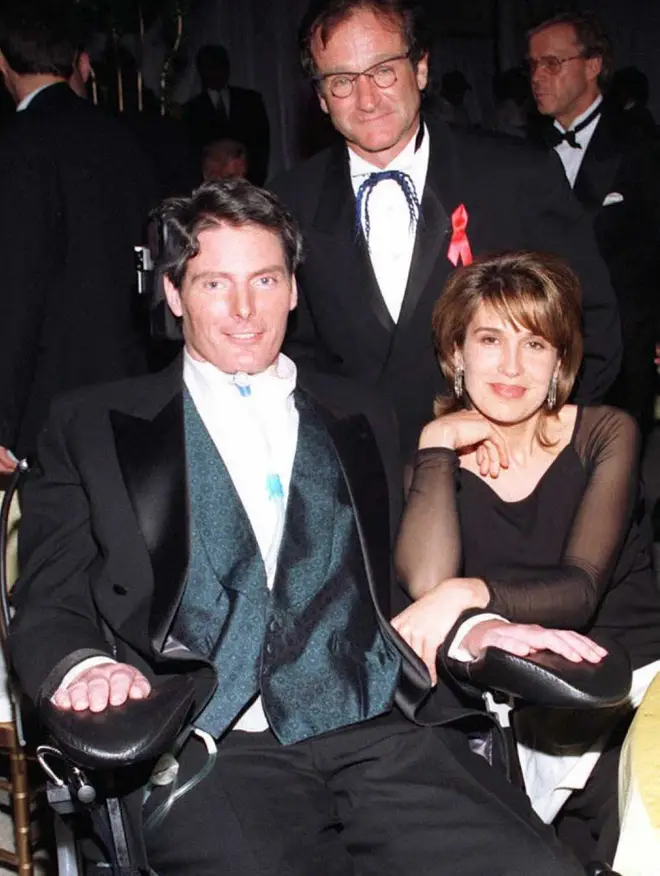
"As soon as I hung up the phone, it dawned on me that I had just agreed to appear live in front of two billion people, in a wheelchair, breathing on a ventilator, and with no way of knowing whether my body would remain still during my five to seven minutes onstage," Reeve continued.
"If I hit a bump as I wheeled on, I might spasm and end up slumped in an awkward position, and there might not be time to put me back together again before the curtain went up."
It took a lot of work to make his appearance completely secret, with a special behind-closed-doors rehearsal taking place that morning.
When it came to the awards ceremony, Reeve made the poignant decision to come on the stage with no music at all, when it was suggested he come on stage to John Williams' Superman theme.
The worry was that he would no longer be seen as the iconic superhero, he became a different kind of hero to many people, which he realised after his appearance.

Christopher Reeve at the Oscars®
He used his time on the stage to reaffirm how film and cinema can bring social change, especially for those who don't feel represented on screen.
Introducing a film montage on the screen behind him, he said: "When I was a kid, my friends and I went to the movies just for fun, but then we saw Kubrick's Dr. Strangelove. It started us thinking about the madness of nuclear destruction."
"Stanley Kramer’s The Defiant Ones taught us about race relations, and we began to realise that films could deal with social issues,” he said in his speech.
His appearance and speech made a huge impact on people, as he experienced first-hand after the awards.
"Another completely unexpected benefit came out of the Oscar adventure," Reeve wrote in his memoir. "During my stay in Hollywood, I entered hotels and buildings through garages, kitchens, and service elevators, and met cooks, waiters, chambermaids, and maintenance crews. Many of them said they were praying for me."
"Others looked me right in the eye and said 'We love you, Superman. You're our hero.' At first I couldn’t believe they meant it. Then I realised that they were looking past the chair and honouring me for a role that obviously had real meaning for them, I didn’t feel patronised in any way."
"Clearly a part I had played twenty years before was still valued. The fact that I was in a wheelchair, unable to move below my shoulders, and dependent on the support of others for almost every aspect of my daily life had not diminished the fact that I was - and always would he - their Superman."
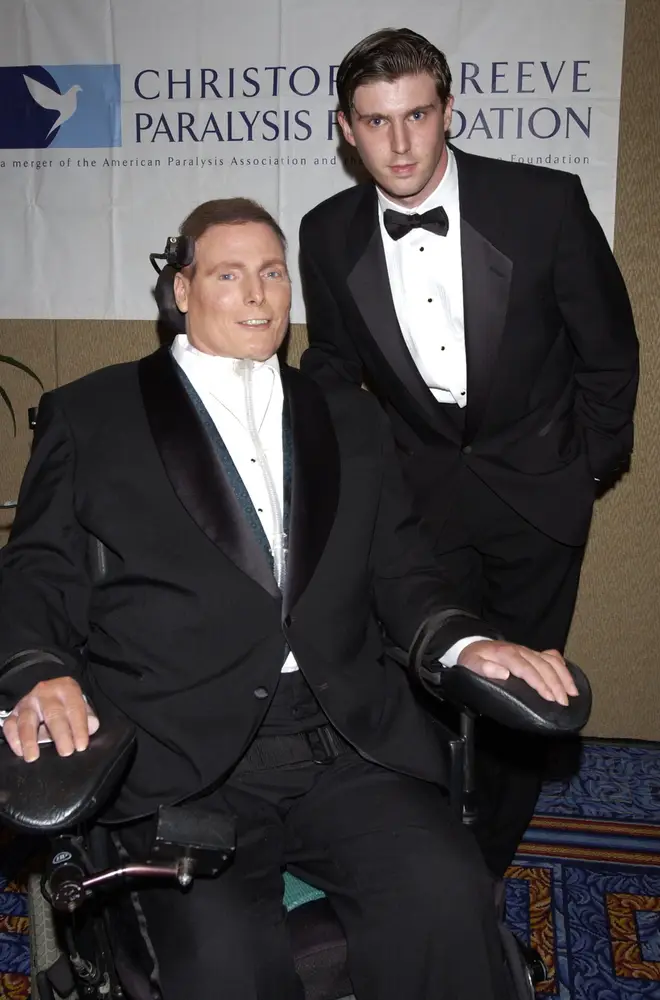
It was hugely significant for Reeve himself, his friends, his family, and his many fans around the world, especially those who might be struggling with health issues themselves.
Though he reignited his zest for life and his will to keep battling, making many more public appearances throughout his life, Christopher Reeve would sadly die on 10th October 2004.
It's a moment that his eldest son Matthew also cherishes, as he revealed during the premiere for the documentary Super/Man: The Christopher Reeve Story.
"I remember I was in London, it was a school night and we stayed up until three or four in the morning to watch it. And it was absolutely incredible."
"What sticks with me most was after that incredible warm welcome and that very long ovation that he received."
